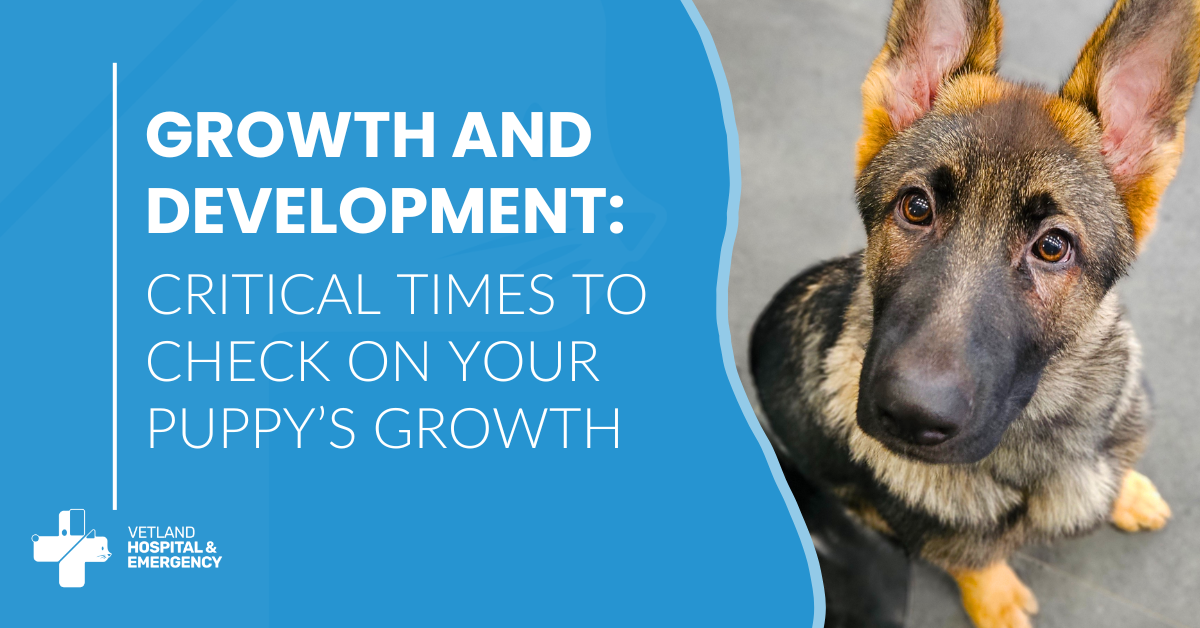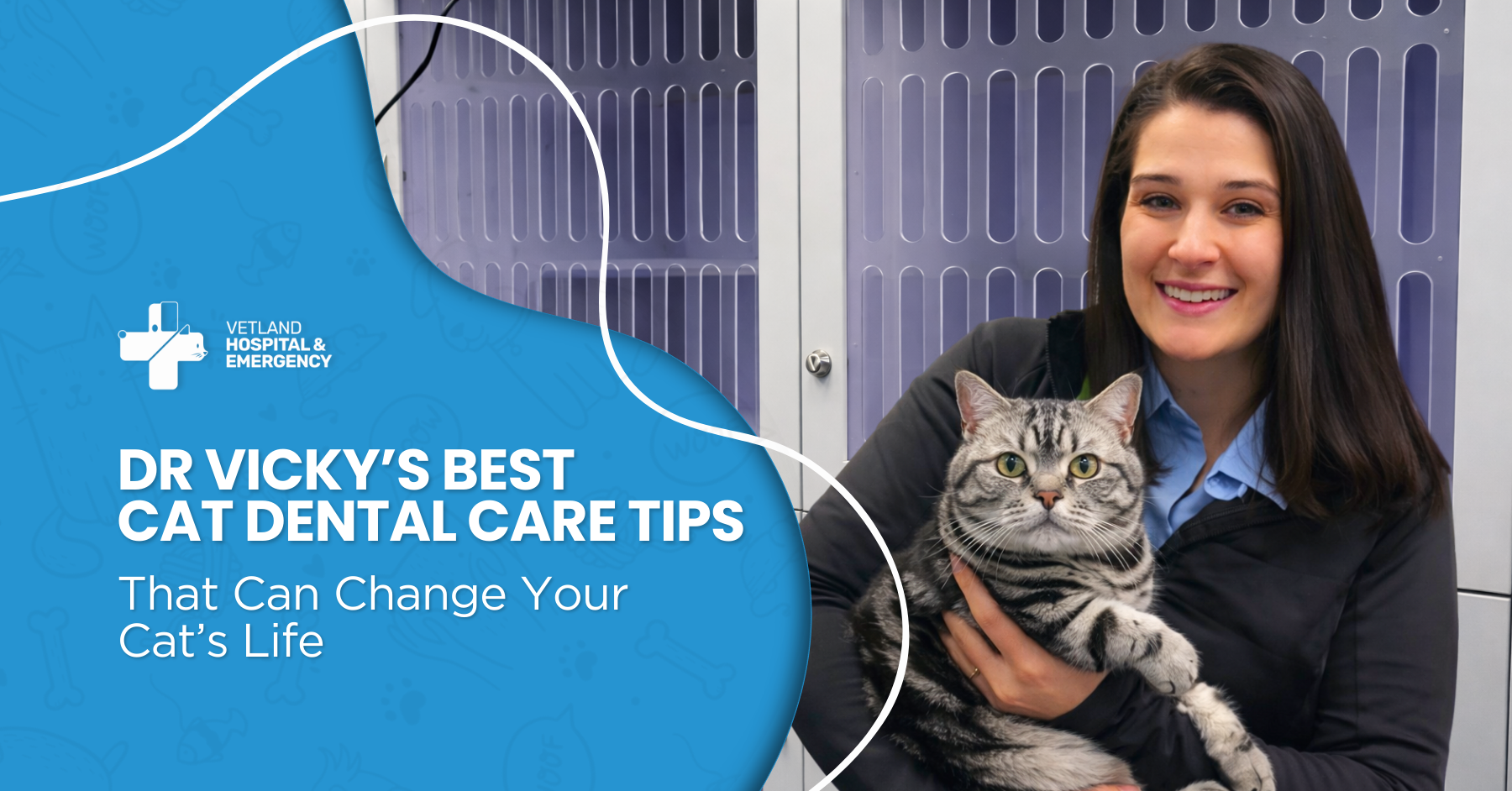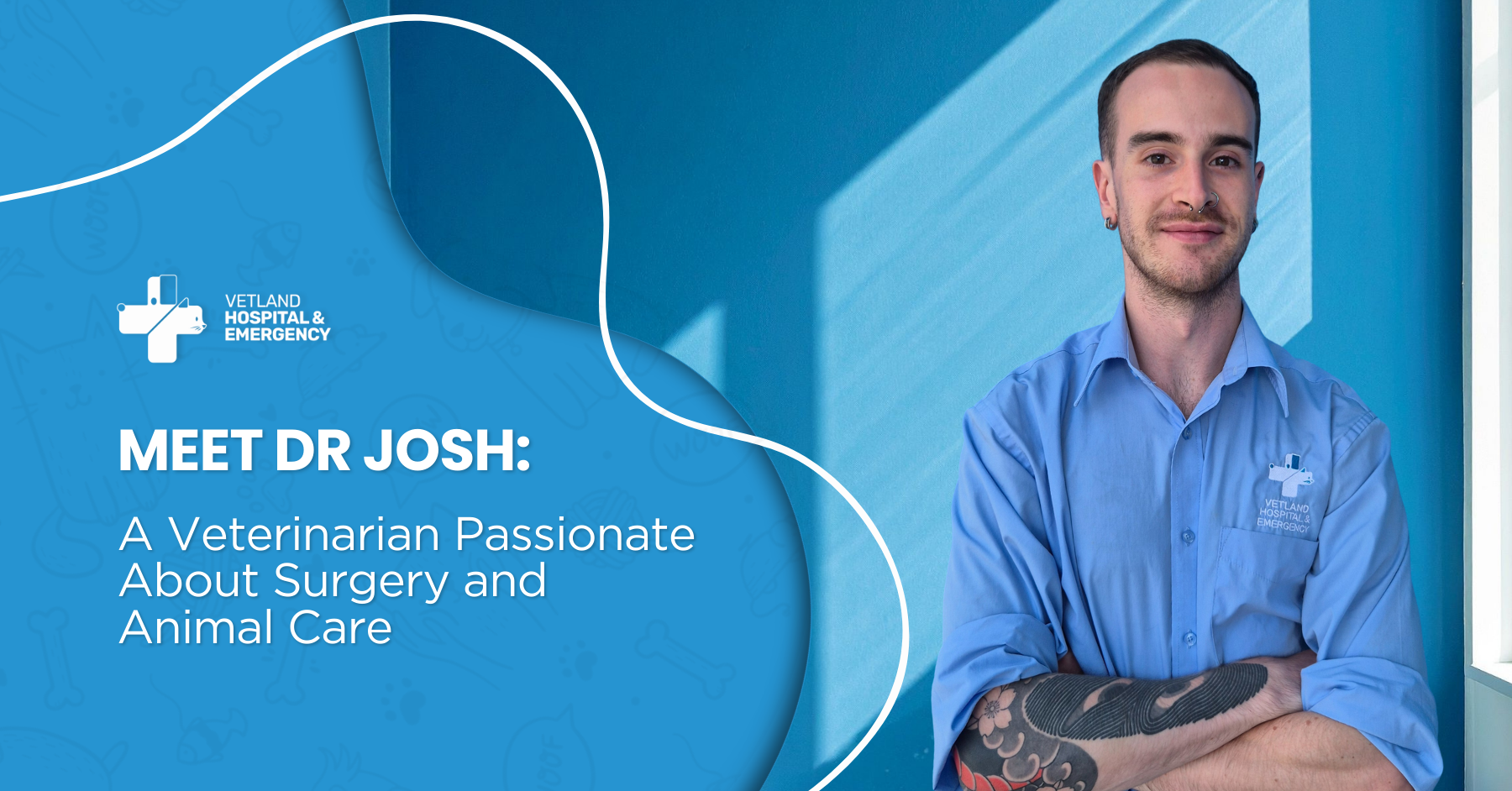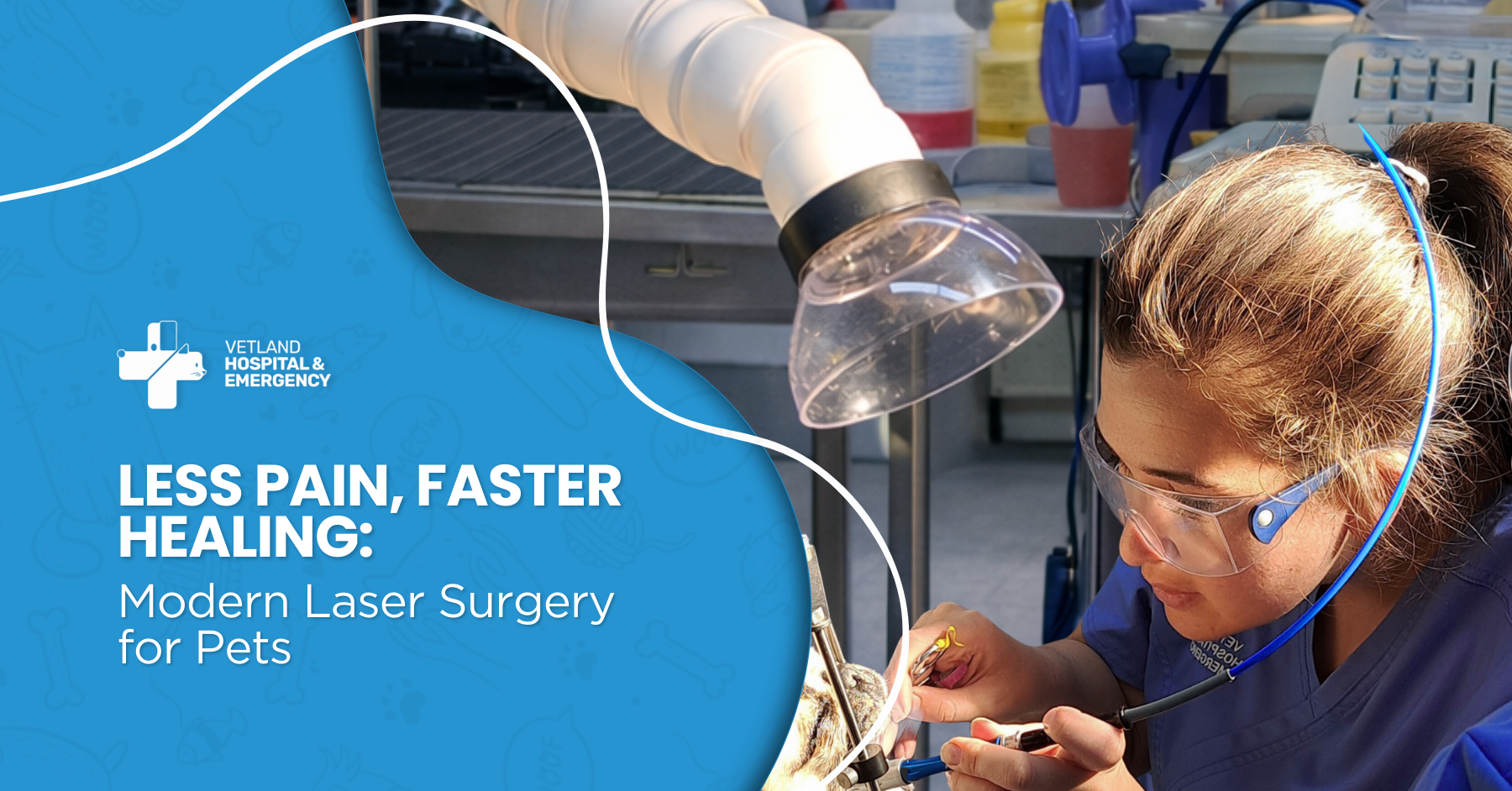Dr Vicky’s Best Cat Dental Care Tips That Can Change Your Cat’s Life
Your cat may be hiding dental pain right now, would you know it? Cat dental care matters for one reason—it hurts.There are no obvious symptoms, but...
2 min read
![]() VetLand Hospital & Emergency
Aug 16, 2024 5:28:02 PM
VetLand Hospital & Emergency
Aug 16, 2024 5:28:02 PM


Puppies grow at an astounding rate, and their first year is filled with critical developmental milestones. It’s not hard to quickly find yourself getting overwhelmed!
Here's a timeline of key developmental stages between 8 weeks and 6 months of age, along with important health checks and preventive measures to help you spend more time enjoying your puppy.
6-8 weeks is time for your puppy’s first veterinary visit! This visit is often not with you, as it is done whilst your puppy is still with their family and breeder. Often puppies are vaccinated and microchipped at this visit. Be sure when you adopt your new puppy that you have their;
Vaccination booklet
Microchip number and change of ownership documentation
As soon as you adopt your new puppy, a smart move is a health check with your family veterinarian.
This is a time to pick up on any development health issues with your puppy, as well as confirm their health schedule. This consultation will cover;
| General Wellbeing | Musculoskeletal check |
| Behaviour | Exercise |
| Vaccination status check | Microchip check |
| Health Checks | Breed-specific health concerns |
| Nutrition | Cardiovascular check |
| Medical Schedule | Skin check, including hernias |
| Flea & worming status check | Urogenital check, including undescended testicles |
| Dental check |

By the time your puppy reaches 12 weeks, it's time for the second round of vaccinations and another vet check. At this stage:
There may be some changes needed to their flea and worming schedule, be sure to find out at your vaccination appointment.
You are in the PEAK socialisation period. Start socialisation activities to help your puppy adapt to different environments, people, and other animals. Your puppy’s immune system is still developing so work with your vet to identify safe ways support their social development.
This is the optimal time to start a puppy school. Puppy school is essential, even for seasoned puppy parents, as it gives dog’s exposure to new environments, people and pets during their limited development stage. From 16 weeks old, their ability to perceive new experiences as positive will dramatically reduce.
 At 16 weeks, some puppies may require a third vaccination. However, your puppy may have benefited from an ‘early-finish’ vaccination, and this may not be needed. This period marks the end of the critical socialisation window. Key points include:
At 16 weeks, some puppies may require a third vaccination. However, your puppy may have benefited from an ‘early-finish’ vaccination, and this may not be needed. This period marks the end of the critical socialisation window. Key points include:
Monitoring the first signs of baby teeth becoming wobbly, the front teeth will wobble first!
Assessing any social anxieties and being quick to develop strategies to address them.
Regular interaction with other dogs and people helps reinforce positive behaviours and reduces the risk of fear or aggression in adulthood.
When your puppy reaches six months, their bodies will have changed again! As will their needs! This check-up will include:
Ensuring all baby teeth have fallen out and adult teeth are in place.
Reassessing nutrition and weight to ensure your puppy is on the right track.
Discussing breed-related diseases and preventive measures. For instance, we will spend time discussing bloating and twisting for German Shepherd puppies, but with poodles we will work on strategies to maintain their dental health.
Discussion regarding the optimal time for desexing, depending on your puppy’s breed and health status.
While this article focuses on the critical early months, remember that most puppies will continue to grow until they are 12 months old, with some continuing to grow until they are 18 months old! Proper nutrition, exercise and early behavioural guidance are critical as your puppy transitions into adulthood.
Having a great family vet on board to help guide you both through these challenges not only makes for a smooth transition, but sets them up for healthy growth.

Your cat may be hiding dental pain right now, would you know it? Cat dental care matters for one reason—it hurts.There are no obvious symptoms, but...

What makes someone choose a career full of uncertainty, constant learning, and never-ending challenges?

Gentle. Precise. Designed for Comfort.